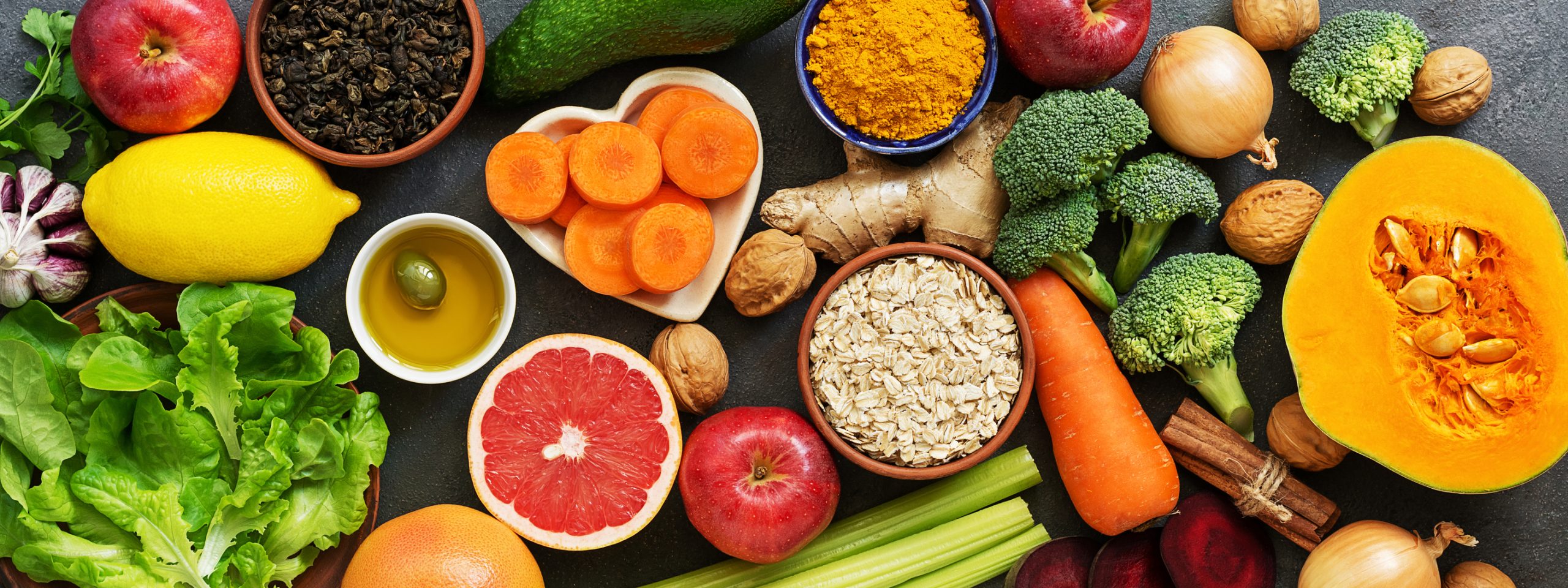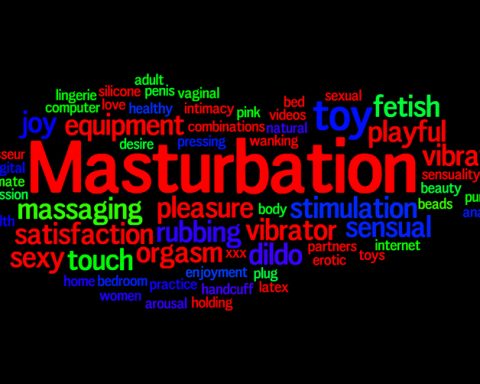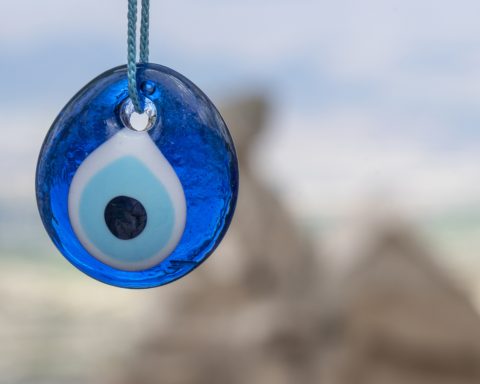Body cleansing is a practice that aims to remove toxins from the body and improve overall health. However, there are many myths and misconceptions about body cleansing, and some methods can be harmful or ineffective. In this article, we will explore what body cleansing is, what are the different types of body cleansing, what are the benefits and risks of body cleansing, and how to safely cleanse the body.
What is body cleansing?
Body cleansing, also known as detoxification or detox, is the process of eliminating or reducing the exposure to substances that are considered harmful or toxic to the body. These substances can include pollutants, synthetic chemicals, heavy metals, and processed foods, which can negatively affect health.
The body has its own natural detoxification system, which involves the liver, kidneys, digestive system, skin, and lungs. These organs work together to filter, break down, and excrete toxins from the body. However, some people believe that the body’s natural detoxification system is not enough, and that it needs external help to remove toxins more effectively.
Types of body cleansing
There are many types of body cleansing methods, which vary in their approach, duration, and effectiveness. Some of the most common types of body cleansing are:
Detox diets
Detox diets are dietary plans that restrict or eliminate certain foods or food groups, and replace them with foods or beverages that are supposed to enhance detoxification. Some examples of popular detox diets are:
- Juice cleanse: This involves consuming only fresh fruit and vegetable juices for a period of time, usually between 3 and 10 days. The juices are supposed to provide vitamins, minerals, antioxidants, and enzymes that can help cleanse the body.
- Water fasting: This involves drinking only water for a period of time, usually between 24 and 72 hours. The water is supposed to flush out toxins and waste from the body.
- Lemonade diet: This involves drinking a mixture of lemon juice, maple syrup, cayenne pepper, and water for a period of time, usually between 10 and 40 days. The lemonade is supposed to cleanse the liver and the digestive system.
Detox diets may have some benefits, such as weight loss, improved digestion, and increased energy. However, they also have many drawbacks, such as nutrient deficiencies, dehydration, electrolyte imbalance, muscle loss, fatigue, headaches, and irritability. Detox diets are not recommended for people with medical conditions, such as diabetes, kidney disease, or heart disease. Detox diets are also not supported by scientific evidence, and there is no proof that they can remove toxins from the body more effectively than the body’s natural detoxification system.
Herbal cleanses
Herbal cleanses are the use of herbs or herbal supplements that are supposed to have detoxifying properties. Some of the herbs commonly used for body cleansing are:
- Milk thistle: This is a plant that contains a compound called silymarin, which is believed to protect and regenerate the liver cells, and stimulate bile production and secretion. Bile is a fluid that helps digest fats and eliminate toxins from the body.
- Dandelion: This is a plant that has diuretic and laxative effects, which means that it can increase urine and stool output. This can help flush out toxins and waste from the kidneys and the colon.
- Burdock: This is a plant that has anti-inflammatory and antioxidant effects, which means that it can reduce inflammation and oxidative stress in the body. Oxidative stress is a condition that occurs when there is an imbalance between free radicals and antioxidants in the body. Free radicals are unstable molecules that can damage the cells and tissues, and antioxidants are substances that can neutralize them.
Herbal cleanses may have some benefits, such as improving liver function, reducing inflammation, and increasing antioxidant levels. However, they also have some risks, such as allergic reactions, interactions with medications, and liver damage. Herbal cleanses are not regulated by the Food and Drug Administration (FDA), and their quality, safety, and effectiveness may vary. Herbal cleanses are not recommended for pregnant or breastfeeding women, children, or people with liver disease or blood disorders.
Colon cleansing
Colon cleansing, also known as colonic irrigation or enema, is the insertion of water or other liquids into the rectum and colon, which are the lower parts of the digestive system. The liquids are supposed to wash out the fecal matter and toxins from the colon, and improve bowel movements and digestion.
Colon cleansing can be done at home using kits that contain tubes, bags, and solutions, or at a clinic by a professional who uses specialized equipment. Some of the solutions used for colon cleansing are:
- Water: This is the most common and simplest solution used for colon cleansing. Water can help hydrate and soften the stool, and stimulate the colon to contract and expel the waste.
- Saline: This is a solution of salt and water, which can help balance the electrolytes and prevent dehydration. Saline can also help draw water into the colon, and increase the volume and pressure of the stool.
- Coffee: This is a solution of coffee and water, which can have a stimulating effect on the liver and the gallbladder. Coffee can also increase the production and secretion of bile, which can help digest fats and eliminate toxins from the body.
Colon cleansing may have some benefits, such as relieving constipation, bloating, and gas, and improving digestion and bowel movements. However, it also has many risks, such as dehydration, electrolyte imbalance, infection, perforation, and damage to the colon and the rectum. Colon cleansing is not necessary for most people, as the colon can cleanse itself naturally. Colon cleansing is not recommended for people with medical conditions, such as diverticulitis, ulcerative colitis, Crohn’s disease, or hemorrhoids.
Benefits of body cleansing
Body cleansing can have some benefits for the body, depending on the type and duration of the cleanse, and the individual’s health status and lifestyle. Some of the possible benefits of body cleansing are:
Toxin elimination
The body can eliminate toxins naturally through the liver, kidneys, digestive system, skin, and lungs. However, some factors, such as poor diet, stress, pollution, smoking, alcohol, and drugs, can increase the production and accumulation of toxins in the body. This can overload the body’s natural detoxification system, and impair its function.
Body cleansing can help the body eliminate toxins more effectively, by reducing or avoiding the intake of toxic substances, and by enhancing the activity and efficiency of the detoxification organs. Body cleansing can also help the body eliminate toxins that are stored in the fat cells, which can be released during weight loss.
Improved digestion
The digestive system is responsible for breaking down the food and absorbing the nutrients that the body needs. However, the digestive system can also be affected by toxins, inflammation, infection, and imbalance of the gut bacteria. This can result in digestive problems, such as indigestion, heartburn, nausea, vomiting, diarrhea, constipation, bloating, and gas.
Body cleansing can help improve digestion, by removing or reducing the intake of foods that can irritate or inflame the digestive system, such as processed foods, sugar, gluten, dairy, and spicy foods. Body cleansing can also help improve digestion, by increasing the intake of foods that can nourish and heal the digestive system, such as fiber, probiotics, prebiotics, and anti-inflammatory foods.
Boosted energy levels
The body needs energy to perform its functions and activities. However, the body can also lose energy due to toxins, stress, poor sleep, and nutrient deficiencies. This can result in fatigue, weakness, and low mood.
Body cleansing can help boost energy levels, by removing or reducing the intake of foods that can drain energy, such as caffeine, alcohol, and refined carbohydrates. Body cleansing can also help boost energy levels, by increasing the intake of foods that can provide energy, such as complex carbohydrates, protein, healthy fats, and vitamins and minerals. Body cleansing can also help boost energy levels, by improving blood circulation, oxygen delivery, and metabolism.
How to safely cleanse the body
Body cleansing can have some benefits, but it can also have some risks, especially if done incorrectly or excessively. Therefore, it is important to follow some guidelines to safely cleanse the body, such as:
Gradual approach
It is not advisable to start a body cleanse abruptly or drastically, as this can shock the body and cause adverse reactions. It is better to ease into a body cleanse gradually, by making small and gradual changes to the diet and lifestyle, and by monitoring the body’s response and tolerance. It is also better to limit the duration of a body cleanse, and not to do it too frequently or for too long, as this can deplete the body of essential nutrients and impair its function.
Hydration
Water is essential for the body’s detoxification process, as it helps flush out toxins and waste from the body, and maintain the balance of fluids and electrolytes. Therefore, it is important to stay hydrated during a body cleanse, by drinking enough water and other fluids, such as herbal teas, juices, and soups. It is also important to avoid or limit the intake of fluids that can dehydrate the body, such as caffeine, alcohol, and sugary drinks.
Balanced nutrition
Nutrition is vital for the body’s health and function, especially during a body cleanse, as it provides the energy and the nutrients that the body needs to perform its detoxification process. Therefore, it is important to eat a balanced and varied diet during a body cleanse, by including foods from all the food groups, such as fruits, vegetables, whole grains, legumes, nuts, seeds, lean meats, fish, eggs, and dairy. It is also important to avoid or limit the intake of foods that can hinder the body’s detoxification process, such as processed foods, sugar, salt, fat, additives, preservatives, and pesticides.
FAQs (Frequently Asked Questions)
Here are some of the most frequently asked questions about body cleansing, and their answers:
What is the best time to do a body cleanse?
There is no definitive answer to this question, as the best time to do a body cleanse may depend on the individual’s goals, preferences, and health status. However, some general factors that may influence the timing of a body cleanse are:
- Season: Some people prefer to do a body cleanse during spring or summer, as these seasons are associated with renewal, growth, and vitality. The warmer weather may also make it easier to consume more fluids and raw foods, which are common in body cleansing. However, some people may also benefit from doing a body cleanse during fall or winter, as these seasons are associated with transition, reflection, and rest. The colder weather may also make it easier to consume more warm and cooked foods, which can be soothing and nourishing for the body.
- Lifestyle: Some people prefer to do a body cleanse during a period of low stress and high relaxation, such as a vacation, a weekend, or a holiday. This can help them focus on their body cleansing goals, and avoid distractions and temptations. However, some people may also benefit from doing a body cleanse during a period of high stress and low relaxation, such as a busy work week, a deadline, or a challenge. This can help them cope with their stress, and boost their motivation and productivity.
- Health: Some people prefer to do a body cleanse when they feel healthy and energetic, as this can help them maximize the benefits of body cleansing, and minimize the risks and side effects. However, some people may also benefit from doing a body cleanse when they feel unhealthy and sluggish, such as after an illness, an injury, or a binge. This can help them recover and restore their health, and prevent further complications.
Are there any side effects of body cleansing?
Body cleansing can have some side effects, especially during the first few days of the cleanse, as the body adjusts to the changes in the diet and lifestyle. Some of the common side effects of body cleansing are:
- Hunger: This is a natural and expected response to body cleansing, as the body receives less calories and nutrients than usual. Hunger can be managed by drinking plenty of water and fluids, eating small and frequent meals, and choosing foods that are high in fiber, protein, and healthy fats, which can keep the body full and satisfied.
- Headache: This is a common and temporary side effect of body cleansing, as the body withdraws from caffeine, sugar, and other addictive substances. Headache can be relieved by drinking more water and fluids, resting, and taking painkillers if needed.
- Fatigue: This is a normal and transient side effect of body cleansing, as the body uses more energy to perform its detoxification process. Fatigue can be overcome by getting enough sleep, taking naps, and exercising moderately, which can stimulate the blood flow and oxygen delivery to the body.
- Mood swings: This is a possible and short-lived side effect of body cleansing, as the body experiences hormonal and chemical changes due to the body cleansing. Mood swings can be controlled by practicing stress management techniques, such as meditation, breathing, and yoga, and by seeking social support and positive feedback from friends and family.
Can body cleansing help with weight loss?
Body cleansing can help with weight loss, but only as a short-term and temporary effect. Body cleansing can help with weight loss, by reducing the intake of calories and nutrients, and by increasing the output of fluids and waste. However, body cleansing is not a sustainable or healthy way to lose weight, as it can also cause muscle loss, nutrient deficiencies, dehydration, and electrolyte imbalance. Body cleansing can also lead to weight regain, as the body tends to store more fat and water after a body cleanse, to compensate for the loss and to protect itself from future starvation.
The best way to lose weight and keep it off is to follow a balanced and nutritious diet, and to engage in regular physical activity, which can help the body burn more calories and fat, and build more muscle and metabolism.
How often should one engage in body cleansing?
There is no definitive answer to this question, as the frequency of body cleansing may depend on the individual’s goals, preferences, and health status. However, some general guidelines that may help determine the frequency of body cleansing are:
- Type of body cleanse: Some types of body cleansing are more gentle and mild, and can be done more often, such as herbal cleanses, which can be done once a month or once a season. Some types of body cleansing are more intense and harsh, and should be done less often, such as detox diets, which should be done once a year or once every few years.
- Duration of body cleanse: The longer the body cleanse, the less often it should be done, as it can have more benefits and risks for the body. A short body cleanse, such as a one-day or a three-day cleanse, can be done more frequently, such as once a week or once a month. A long body cleanse, such as a seven-day or a 10-day cleanse, should be done less frequently, such as once a season or once a year.
- Health status: The healthier the individual, the more often they can do a body cleanse, as they can tolerate and benefit from the body cleansing better. The unhealthier the individual, the less often they should do a body cleanse, as they can suffer and harm from the body cleansing worse. People with medical conditions, such as diabetes, kidney disease, or heart disease, should consult with their healthcare professionals before doing a body cleanse, and follow their advice and recommendations.
Conclusion
Body cleansing is a practice that can have some benefits for the body, such as toxin elimination, improved digestion, and boosted energy levels. However, body cleansing can also have some risks, such as nutrient deficiencies, dehydration, and infection. Therefore, it is important to do a body cleanse safely, by following a gradual approach, staying hydrated, and eating a balanced diet. It is also important to consult with healthcare professionals, such as Mugwenu Doctors Email: [email protected] Website: www.mugwenudoctors.com Phone: +254740637248, before doing a body cleanse, and to seek their guidance and support.
If you have any feedback or questions about body cleansing, please feel free to contact us. We would love to hear from you and help you with your body cleansing goals. 😊
Additional Resources
If you want to learn more about body cleansing, here are some recommended books, websites, or products for further information:
- [The Detox Book: How to Detoxify Your Body to Improve Your Health, Stop Disease, and Reverse Aging] by Bruce Fife
- [The Complete Guide to Cleansing and Detox: The Four Winds Holistic Cleanse] by Nicholas Schnell
- [The 9-Day Liver Detox Diet: The Definitive Diet that Delivers Results] by Patrick Holford and Fiona McDonald Joyce
- [The Body Ecology Diet: Recovering Your Health and Rebuilding Your Immunity] by Donna Gates and Linda Schatz
- [The Master Cleanse Made Easy: Your No-Fail Guide to Feeling Great During and After Your Detox] by Robin Westen
- [Detox.org]: A website that provides information, tips, and reviews on various detox products and programs
- [Global Healing]: A website that offers natural health products and supplements for body cleansing and wellness
- [Mugwenu Doctors]: A website that offers professional and effective body cleansing services and solutions












